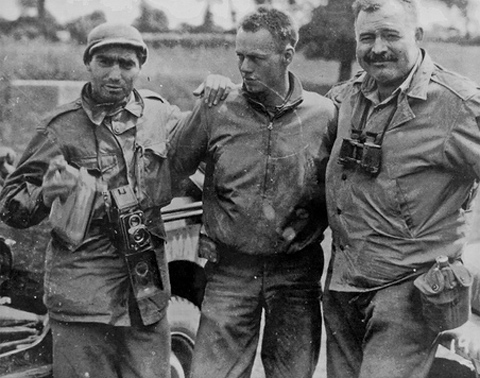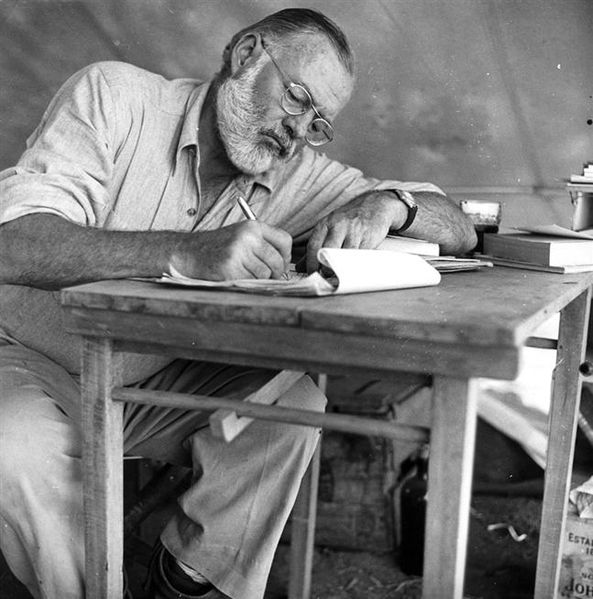 Having finished reading "A Farewell to Arms", I can say that it was completely different than what I was expecting. When I signed onto it in February, I expected a gripping memoir of combat written by one of the most interesting, larger-than-life characters that ever lived. When I did some background research, I expected "the worst" -- a purely romantic novel. Both were wrong. Instead I got a gripping tale of personal commitments, struggles, triumphs and failures; set against a backdrop of warfare and romance.
Having finished reading "A Farewell to Arms", I can say that it was completely different than what I was expecting. When I signed onto it in February, I expected a gripping memoir of combat written by one of the most interesting, larger-than-life characters that ever lived. When I did some background research, I expected "the worst" -- a purely romantic novel. Both were wrong. Instead I got a gripping tale of personal commitments, struggles, triumphs and failures; set against a backdrop of warfare and romance.Not to sound too poetic or philosophical; this novel took me on an "adventure" across Italy and Switzerland, and gave me a feeling of what it was like to be in that area during the First World War. With only one WW1 veteran still with us, and with him being expected to pass away before the end of the summer, we are about to lose an important historical link. Novels such as these can help the population to understand "The Great War" - not so much the chronology, but the emotions and feelings that drove it. The novel was written during the heart of the 1920s, with its own mixture of emotions and social factors. The writing style of the novel offers insight into this. Soon most of those alive during this time will also pass on, and we will lose another link with history.
In conclusion, this novel isn't just a great storyline, it is a link with history. Regardless of your personal tastes in literature, I think anyone would appreciate - and enjoy - this work.

